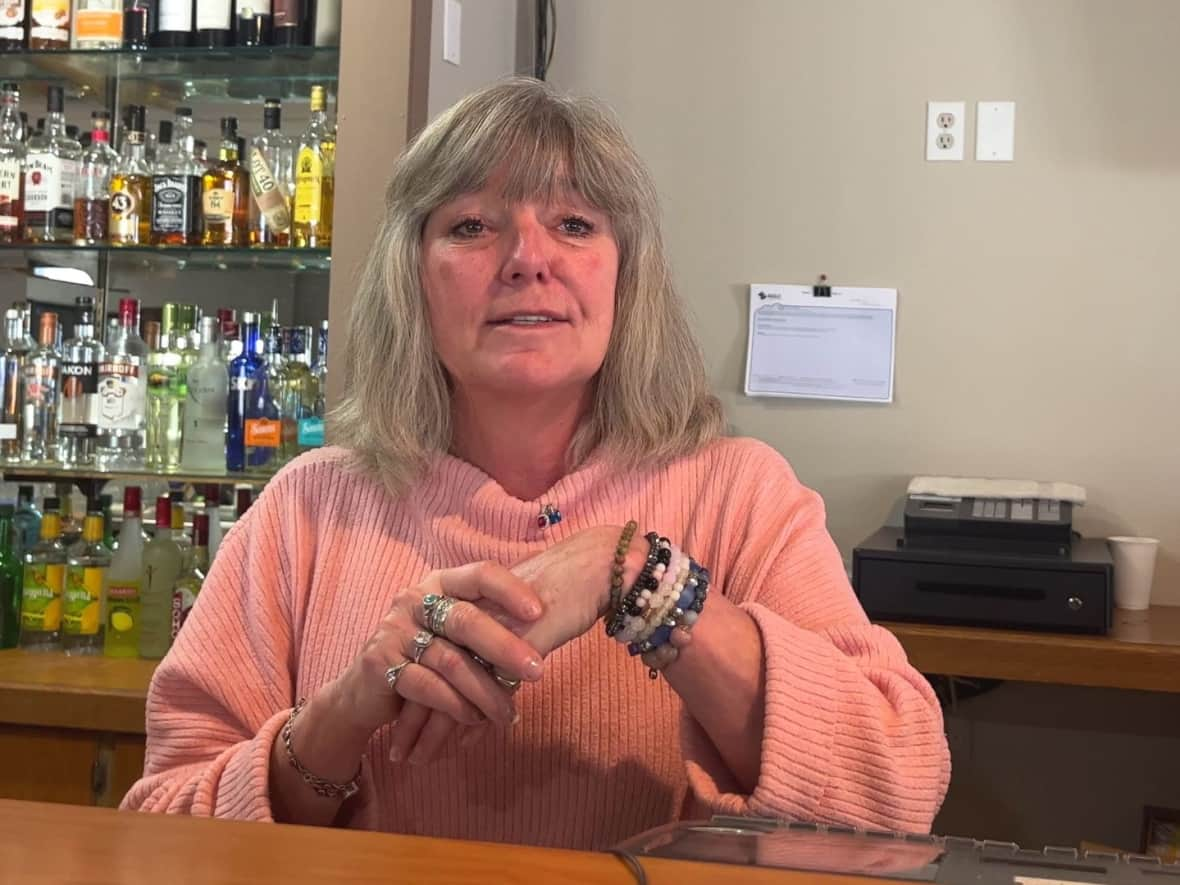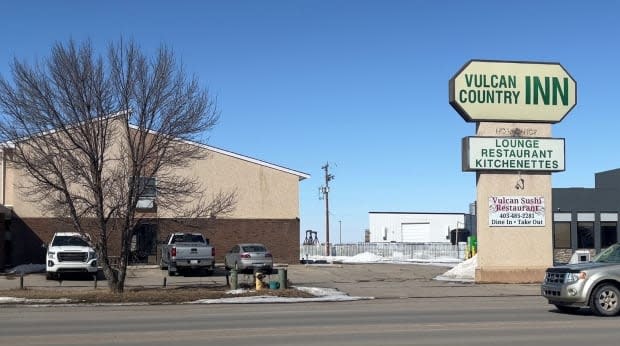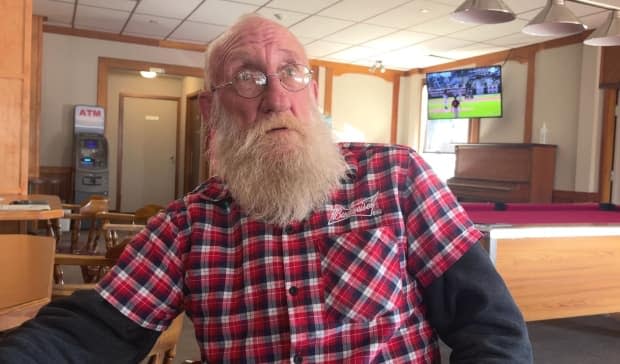Oil booms have meant good jobs in Alberta. But what does the future hold?

Business at the Vulcan Country Inn is slow just after noon on a weekday.
It's so slow, bartender Brenda Spencer is now the only employee in the lounge. If sales go up, she could slip into a manager role. But for now, she's pouring drinks and sometimes waits for hours before seeing a customer.
"Like, it's a beautiful day. But no one's walking in, dropping in," she said, nodding at the room of a dozen empty tables and several VLTs.
This is Alberta — a province facing such an intense labour shortage that it's advertising for workers in Toronto and Halifax. But it's also a place with the highest unemployment rates in the country among major cities.
For Spencer, in this town 120 kilometres southeast of Calgary, the explanation for the quiet bar is obvious. Vulcan County, long known for its agricultural base, still heavily relies on the oil and gas sector. It's an industry that, over the last 50 years, has made up more than half of the county's tax base.
So Spencer is waiting — for the new oil boom to pad wallets and translate into customers, which in turn would lead to hiring.
The 'hollowing out' of the middle jobs
For years, economists in industrialized countries have tracked what has been called a "hollowing out" of middle-skilled jobs — referring to jobs like machine operators and secretaries that economists place in the middle of wage distributions.
If a person can't get a job that pays reasonably well in the middle, they often have to retrain or look at jobs requiring less skill with lower wages.
Until now, Alberta largely bucked this trend.
Joseph Marchand, a University of Alberta economist, studied how past oil and gas booms led to spillovers of employment in other industries and created more of these solid, middle-wage jobs.
In his research, Marchand tracked how job creation in the energy sector during boom times in the past spun off new work in sectors only loosely tied to energy — around three construction jobs, two retail jobs and 4½ service jobs for every 10 energy jobs, according to his research.
It's not clear yet if this current boom will do the same.

But Marchand says Alberta should cast an eye to the future when thinking about how to keep the middle class strong.
"The question going forward is, can we … target other things that could take the place of what an energy boom used to do for our economy?" he said.
Alberta has long had a reputation as a provider of energy. Perhaps the spinoff benefits could come from targeting raw minerals, which are plentiful in the Northwest Territories.
"We're the road north, right? So maybe that does mean a lot of spillovers for Alberta, too, as resources move through Alberta through the territories," he said.
"And maybe a resource closer to home, like hydrogen, could be developed in a similar manner. But these are industries in their infancy."
It could be something completely different, he said, like the tech sector in Calgary and Edmonton, often cited as a poster child for diversification.
Or maybe it could involve innovations in Alberta's oldest industry, agriculture.
"It's about fitting what we have and what we think we're going to have in the future — where we think the jobs are going, right?" Marchand said. "There's a lot of moving parts here. And it's hard to pin down one thing.
"But we know where the growth isn't going to be, unless we get a big change in energy policy."
The reality on the ground
Calgary now has an unemployment rate of 6.6 per cent. It's also the second most unequal city in Canada after Toronto, according to the 2022 Community Wellbeing Report from anti-poverty group Vibrant Communities Calgary.
Local job fairs are drawing huge crowds.
"It's insane. I wasn't expecting such a big turnout," one attendee told CBC's Calgary Eyeopener at the the Telus Convention Centre last Tuesday.
LISTEN | Hear what jobseekers had to say at a career fair in Calgary:
In CBC Calgary's text messaging community as well, many people have written about the challenges they are having finding even entry level work.
The Calgary newsroom is using these notes to help shape the questions we ask about the local employment seen this spring.

Back at the Vulcan Country Inn, a few customers file in on this weekday afternoon. With enough staff, Spencer could slide into a supervisory role and bring a couple of others in to staff the bar, a couple of others to run the floor.
In the rest of the hotel, the handful of staff often pull double-duty. Some days the owner runs the show on his own, turning over the rooms, manning the front desk — tasks that, in boom times, might be delegated to other staff.
Given the share of Vulcan County's tax base that comes from oil and gas, those in the bar this afternoon say they are watching for a boom. They've seen oil companies' record profits. They heard when the Canadian Association of Petroleum Producers estimated oil and gas companies would be investing $40 billion in 2023, surpassing pre-COVID investment levels.
But will it create all those other jobs?
The oil and gas companies are major employers in the area but the surge in new jobs hasn't happened yet, said Jason Schneider, reeve of Vulcan County.
"We're not seeing a lot of expansion. The ones that are operating here, they're busy. But as far as the surge we used to see when oil prices went up? Everybody was hiring people left, right and centre," he said.
"We definitely haven't seen it this time around."

Bob Martin, who was born in Vulcan, ordered a beer and was drinking with friends at the lounge.
He spent most of his career in the oilpatch. He left Vulcan once for the West Coast to work in logging and commercial fishing, but the town has been good to him, he said. It seems to have a magnetic draw, always bringing him home.
Today, Martin sees younger members of the community eyeing tech jobs in the city, and he feels the mistrust among those who become suspicious of every boom and every bust.
Still, he thinks the community will find a way forward.
"We're struggling here, but our hand will be the last hand on the rope before we let go, eh?" Martin said. "Nobody around here says die. We'll give 'er till the end, until somebody drags us out, pretty much."


